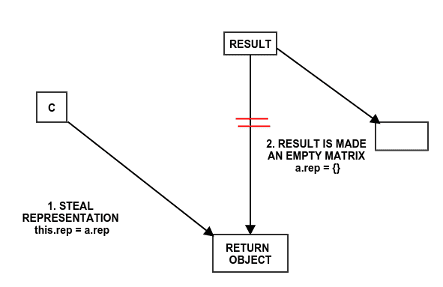Stroustrup on Campus
2015-01-10It’s not everyday that the creator of C++ visits your campus. And when he does, everyone scurries around in giddy excitement hoping to exchange a word with him at least. Today was that day for PES University. At 11AM, Bjarne Stroustrup entered the auditorium, sending a wave of hushes down the rows of students and teachers, as the crowd fell silent and stood to applaud him.
The Essence of C++
“Lots of people have really different ideas about what C++ is", Stroustrup began, using the analogy of a blind man trying to describe an elephant: “a tail, a trunk, perhaps a wonderfully large leg, is as far as he would get”. The ultimate aim of a programming language is to build maintainable systems and often in the deluge of details and nuances we lose sight of the bigger picture.
What is C++?
C++, he explained, is a systems programming language, used in embedded systems and other resource constrained environments.
“C++ is expert friendly, but it is not just expert friendly.”
Resource Management
He went on to explain the concept of a resource as anything that needs to be released after having been initially acquired.
“It’s not just memory; There’s file handles, locks, sockets, threads. If you leak enough file handles, your OS would freeze!”
Pointer Misuse
“The complexity of your code should reflect the complexity of what you’re doing”
void f(int x, int n)
{
Gadget * g = new Gadget{n}; // Look ! I’m a Java Programmer :)
if(x < 100) throw std::runtime_error{"weird"}; //leak
if(x < 200) return; //leak
delete p;
}
Stroustrup went through the problems with raw pointers explaining how leaks occur when a pointer is not freed in the case of an exception or a return.
“Most uses of pointers in local scope are not exception safe”.
The cleaner approach, he explained, would be to use a unique_ptr,which fires the destructor for the object as soon as the unique_ptr is destroyed.
unique_ptr<Gadget> g {new Gadget{n}}; // Manage that pointer!
“Why use a pointer at all? Just use a scoped variable”
Gadget g{n}; // Death to the pointer!
How do you get a large amount of data out of a function?
?? operator+(const Matrix& a, const Matrix& b)
{
}
The ways in which data can be passed out of functions were explained:
- POINTER to a new’d object - Who owns the object and who would be responsible for it’s destruction? This adds to code complexity and often causes leaks.
- REFERENCE to a new’d object - Who does the delete? What delete. We have made the notation pleasant at the cost of hiding the problem.
- OBJECT - object copies are expensive.
- SMART POINTER - still need to dereference it.
Move Semantics
He went on to explain C++11’s solution to the problem:
Matrix operator+(const Matrix& a, const Matrix& b)
{
Matrix result;
// copy a[i] + b[i] into result[i] for each i
return result;
}
Matrix c = a + b;
“Don’t copy, steal the representation”
class Matrix
{
Representation rep;
Matrix(Matrix&& a) //Move Constructor
{
rep = a.rep; //*this gets a’s elements
a.rep = {} //a becomes the empty matrix
}
};
The local object result created in the function is returned by value and a special move constructor is used in the creation of the object c, by the caller. This move constructor steals the representation of the local object result. It makes the newly created object c point to this object, while making the local object result the empty object.
The Case Against Garbage Collection
“Garbage Collection is neither general, nor ideal.”
Stroustrup explained that garbage collection applies to memory only and hence does not generalize resource management. In a world that’s only getting more distributed, a garbage collector becomes a global resource that leads to only more contention. C++11 however, does provide a GC interface that does “Litter Collection” for legacy code that may not have handled all it’s leaks.
Object Oriented Programming
Stroustrup used “Ye good olde Shape example” to go over inheritance and polymorphism and emphasized that OOP is only fitting for a domain in which objects are truly hierarchically related.
“You try to force the object into your view. You can’t. Reality is always what it will be.”
Concepts
Of the C++14 features that he introduced, the one that is closest to my heart is that of concepts. The pages of cryptic error messages generated by even a small amount of generic code can make even the staunchest of C++ programmers throw up their hands in defeat. The cause of these errors is the fact that the generic function does not specify the interface it requires on it’s inputs. Should the input iterators be random access or will bidirectional do? Concepts alleviate this problem by allowing you to specify requirements on your inputs.
template<typename S, typename T>
requires Sequence<S>() && Equality_comparable(Value_type<S>, T);
Iterator_of<S> find(S& seq, const T& val);
The template declaration requires S to be a sequence and the elements of S to be comparable with the element T, using the == operator. That’s a mouthful. It’s a good thing there’s a shorthand notation as well. The error message generated by such templated functions specifies the problem quite precisely. For example:
error ‘list<int>’ does not satisfy the constraint ‘Sortable’
This would be soothing to the eyes of any seasoned C++ template programmer.
A Day To Remember
It's not everyday that the creator of C++ visits your campus and it's not everyday that you get an autographed version of his latest book. But today was that day.
